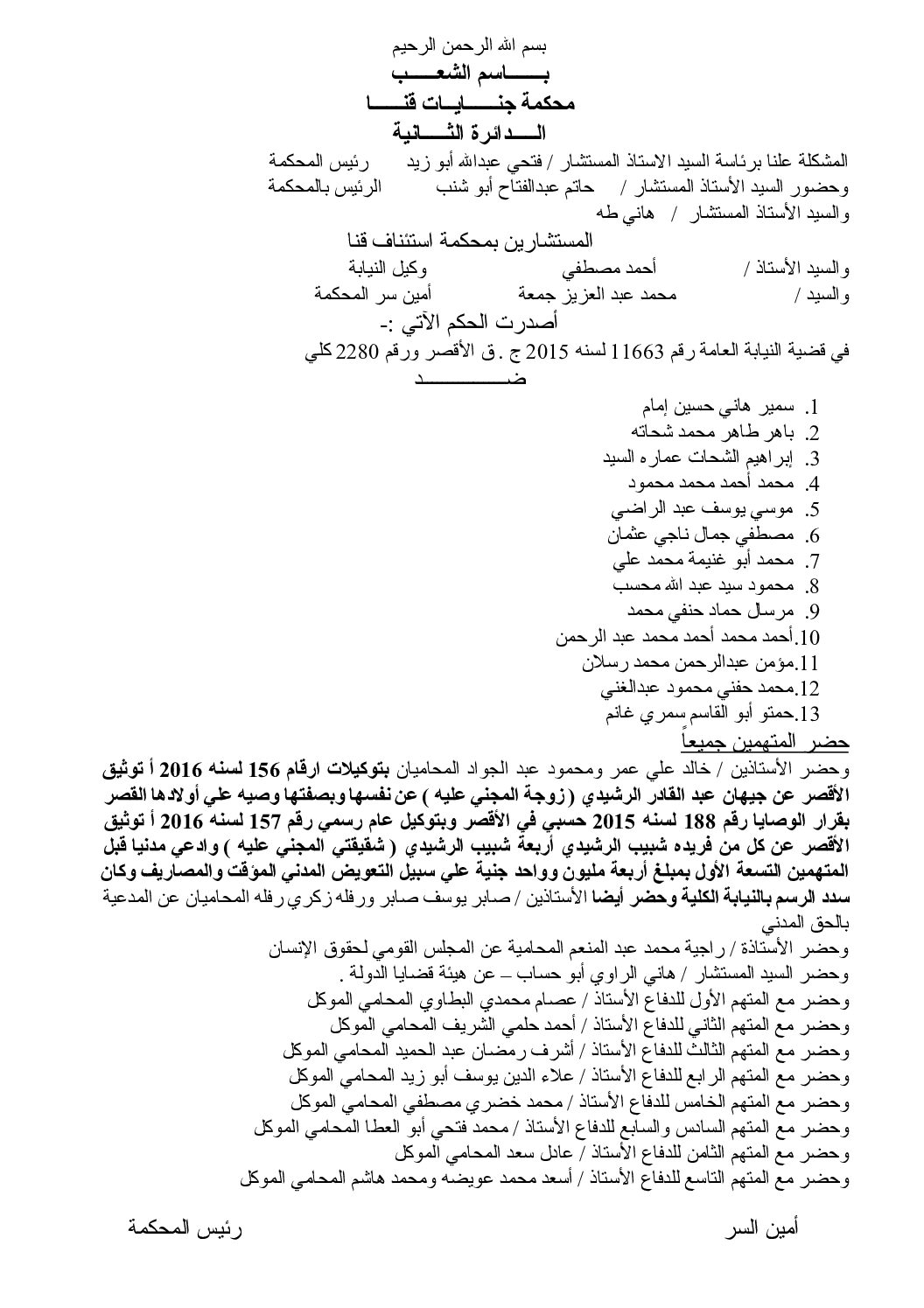Tax Justice | In Its Report to the UN, ECESR: Tax & Budget Are Means of Equality
ECESR Submission to the UN:
The Tax System and the General Budget Are Tools to Achieve Equality and Fight Poverty
The Egyptian Center on Economic and Social Rights (ECESR) submitted a report to the UN Special Rapporteur on Extreme Poverty and Human Rights, replying to some questions proposed by the Special Rapporteurs on Civil Society Organizations and Human Rights Defenders. ECESR provided answers for the queries of the UN Special Rapporteur concerning financial policies, economic and taxation policies, and policies of public spending. In the questions, the special rapporteur had focused on the link between poverty and inequality, on one hand, and economic and spending policies and government priorities, which could either lead to deepening poverty and marginalization or contain radical solutions to fight poverty and achieve social and economic justice.
The report presented by ECESR researchers was thus concerned with the Egyptian tax system and the public budget, due to the belief in the importance of justice in the mobilization of general resources and public spending, particularly in the fight against poverty and achieving equality and justice.
The report discussed the link between the Egyptian tax system and the state’s ability to fulfill its obligations towards its citizens, particularly in relation to the fulfillment their economic and social rights. The report also reflects concerns by ECESR related to the state’s understanding of the clear and direct relationship between the tax system and achieving social justice. The tax system is a social contract between the state and citizens; it is the main source of state income; and it is what the state uses to finance public services. It empowers the state to fulfill its citizens’ basic rights, especially in health, education, housing, food security, and so on.
While citizens are the main source of these taxes, whether from their salaries or through goods and services, and while taxes are collected in an fair and equal manner among all citizens, the people rely on the fair distribution of services between all segments of society. ECESR does not see that his equation is achieved through the Egyptian tax system, which mobilizes its tax resources and divides its expenses in an unfair manner, which inevitable leads to the further marginalization of the most vulnerable groups in Egyptian society.
Successive government have been justifying the state’s inability to fulfill its obligations, under the pretext of “limited resources,” due to the minute state revenues. Tax revenues amounts to 13% of the total GDP, which is relatively low, compared to other countries such as Turkey (25%), Spain (32%), or Italy (43%). Therefore, there is a great need to increase tax revenues, which could happen through taxes on some transactions that remain exempted from taxes, such as capital gains and profits from the stock exchange. It could also happen through the integration of sectors that do not fulfill their tax obligations, such informal companies and sections of informal labor.
In its report to the special rapporteur, ECESR focused on the following points, to emphasize the importance of structuring the current tax system to allow the state to achieve higher revenues from taxes. This should also be through the fair distribution of the tax burden between companies and individual citizens and the in fulfillment of the state’s primary responsibility towards its citizens:
Tax revenues from individual income (11.2%) is almost equal to that from corporate profits (12.8%), which total taxes on capital gains does not even reach half a percentage (0.04%).
The state depends primarily on indirect taxes, taxes on goods and services, whose tax revenue is around 40% of total tax yield. Indirect taxes are risky, since they afford citizens with an additional burden and have a negative impact on citizens’ ability to purchase basic goods or benefit from necessary services. The additional taxes raise the cost of goods and services in a manner that does not conform with citizens’ spending abilities. This distribution indicates the state’s unwillingness to adopt a progressive tax system, preferring to stick to the so-called regressive or unfair taxes and leading to exacerbate the gap between social segments and deepening social marginalization.
In attempt to make up for revenues, which used to come from imposing taxes on imports and foreign investment, the current tax system is boosting indirect taxes, which leads to high prices on basic goods and services. This occurred as a result of stepping-up Egypt’s entering into several investment and trade agreements in the past years.
While around 4% of the general budget is allocated to health, 9% to education, and 3% to housing, huge sums are wasted every year on debt repayment, which made up 14% of the 2013/2014 budget. In the meantime, Egyptians are becoming more vocal in their calls to drop odious debts, especially those contracted under the Mubarak regime.

